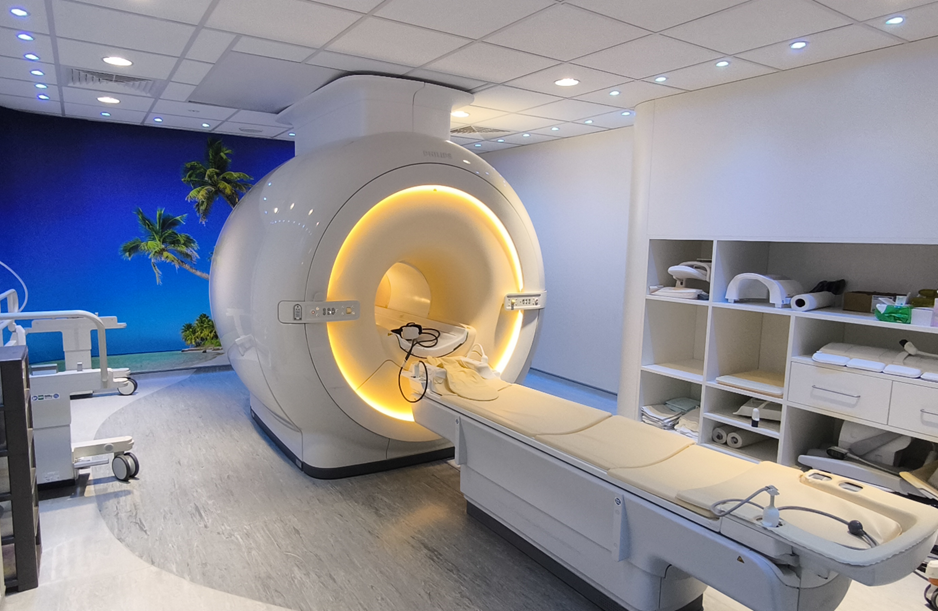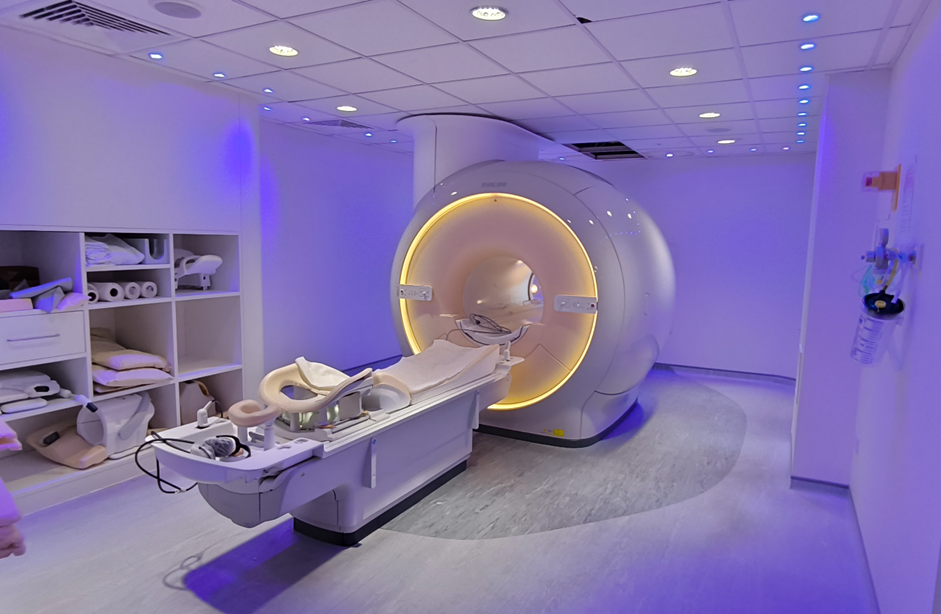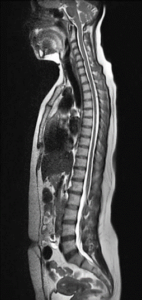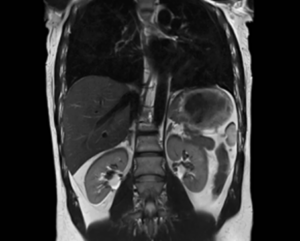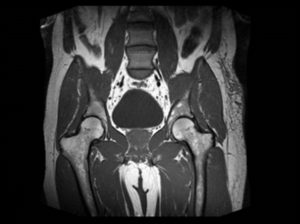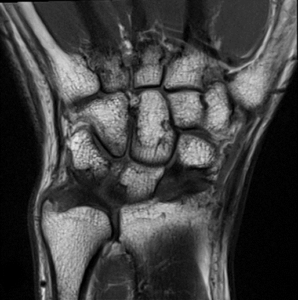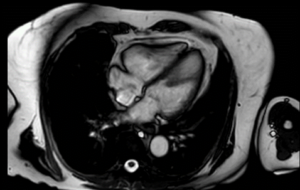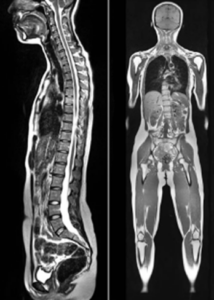Magnetic Resonance Imaging (MRI)
Overview
Magnetic Resonance Imaging (MRI) is a type of scan that uses magnetic fields to produce detailed images of the inside of the body. It’s suitable for almost any part of the body, including the brain and spine, bones and joints, the heart and blood vessels, and internal organs such as the liver, womb, or prostate. The results of an MRI scan can be used to help diagnose conditions, plan treatments, and assess the effectiveness of previous treatment.
How MRI Works
During an MRI scan, you will lie on a table that slides into a tunnel-shaped machine. The MRI scanner uses a strong magnetic field to align the hydrogen atoms in your body. The scanner then sends radio waves through your body, which cause the hydrogen atoms to emit signals that are detected by the machine and used to create a detailed image.
During the scan the Radiographer will add some MRI equipment around the area of interest to captures the information to generate the MR Images.

